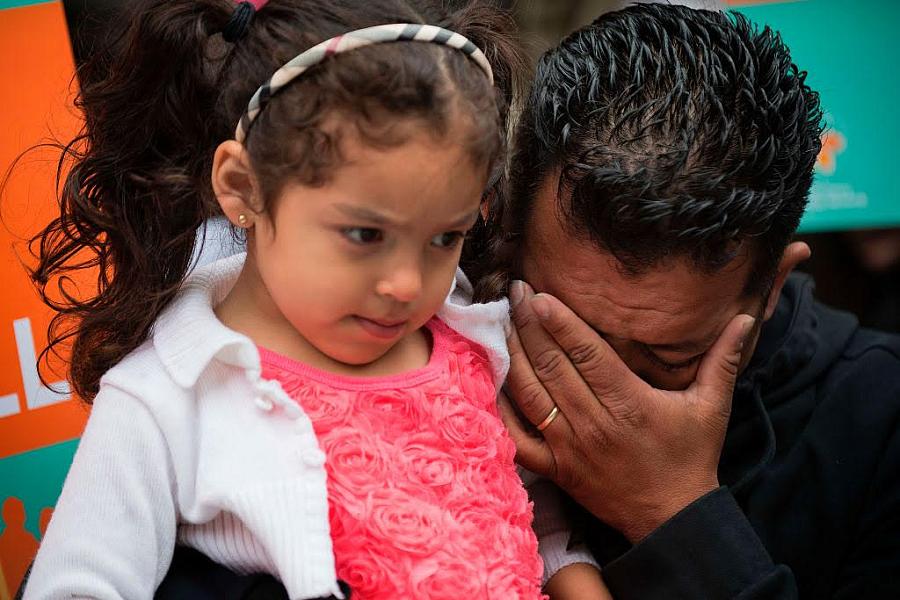In immigrant communities across the country, fears of immigration agents and deportation take a toll

Photo by Jim Watson/Getty Images
In Los Angeles, federal Immigration and Customs Enforcement agents arrested an allegedly undocumented man as he took his 13-year-old daughter to school in March. Three thousand miles away, in Arlington, Virginia, large numbers of Hispanic students didn’t show up for school immediately after Donald Trump’s election. Throughout the country, many undocumented parents are signing documents setting out who should take care of their kids — many of whom are U.S. citizens — if they are detained by ICE.
I want to explore how this deep, widespread and justified fear is affecting the physical, emotional and mental health of the kids of undocumented people, many of whom are U.S. citizens. What’s it like for a child to go to school while worrying whether his parents will be there when he gets home? How does it affect the overall health of a child after her mother or father is arrested for deportation? What are clinicians at community health centers — where many undocumented people go for their primary health care — seeing, and how are they responding? Are some undocumented people skipping health care appointments for themselves or their kids because of their fear of ICE? Are fears of ICE affecting the way kids of undocumented immigrants behave and perform in the classroom?
The anxiety is so great that some undocumented adults have at times put themselves under a form of house arrest because they fear being picked up by ICE agents. In late April, rumors of imminent ICE raids prompted many undocumented workers to stay home from their construction and agriculture jobs in Florida. At least 50 percent of workers on construction jobs in South Florida didn’t show up for work, one general contracting official estimated. The official, Len Mills, said he believed that even some people working legally in the country were so afraid they skipped work.
For my 2017 National Fellowship project, I plan on conducting in-depth reporting in urban and rural areas to learn how fears of ICE are affecting young people in an array of immigrant communities. In Los Angeles, that would include Mexican and Central American immigrants. In Oregon, I plan on talking to immigrant families from several regions, including Eastern Europe, Africa and Latin America.
I’ll also report on how health care workers who serve undocumented immigrants and their kids are responding to the crisis. What innovative strategies are they developing to provide health care to people who are living in fear? How are they being affected by the deep fear many of their patients are experiencing?
Developing these stories will require reaching out to a wide array of contacts, including community health workers, clergy members, church volunteers, immigrants’ rights activists and health care researchers.

